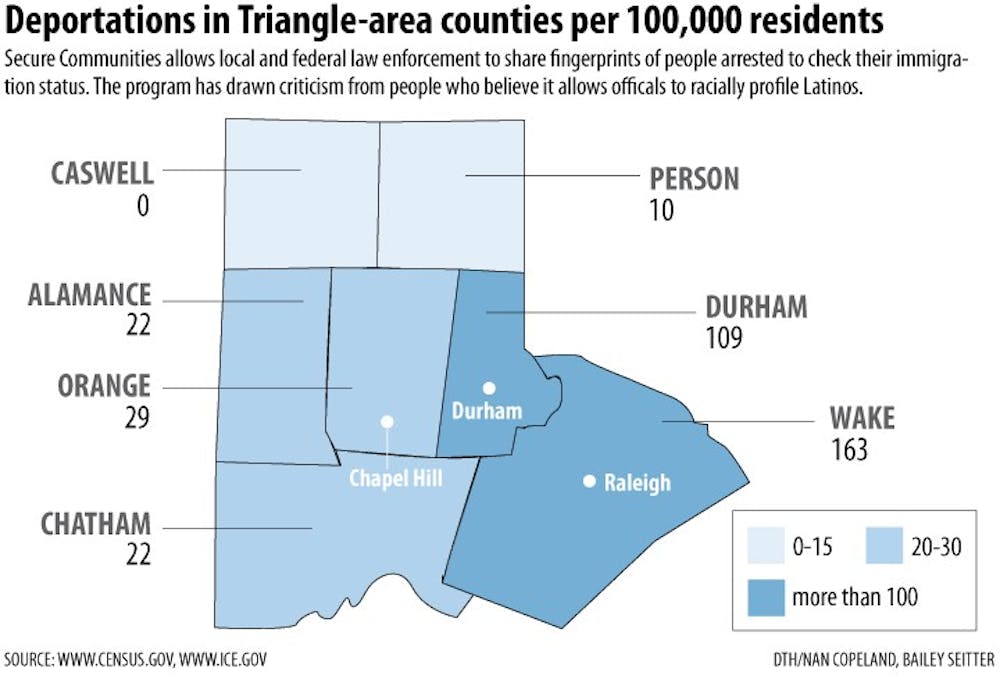Federal laws
The Immigration and Nationality Act’s Section 287 allows local law enforcement to carry out federal immigration laws.
The initiative, referred to as 287(g), has drawn criticism from immigrants rights groups concerned about its potential to encourage racial profiling.
The report said Alamance County deputies, under the leadership of Sheriff Terry Johnson, discriminated against Latinos.
Deputies were four to 10 times more likely to pull over Latino drivers than non-Latinos, according to the report.
The report also said Latino arrestees had their immigration status checked, even when it was unrelated to the arrest.
Rocha-Goldberg said while many in the local Latino community are concerned about the events in Alamance County, El Centro Hispano has not received any complaints of racial profiling in Durham or Orange counties.
Deborah Weissman, a UNC School of Law professor, said this is likely due to the different ways the counties use 287(g).
Weissman, an immigration law expert, said Durham County’s participation in 287(g) is more limited than Alamance County’s — while Orange County does not participate at all.
She said Orange County has no officers certified to enforce federal immigration laws for 287(g). Durham County, she said, has only one.
Alamance County — which has about 120,000 fewer residents than Durham County — has several deputies.
Orange County does participate in the Secure Communities program, which allows local law enforcement to share fingerprints with Immigration and Customs Enforcement and the FBI.
To get the day's news and headlines in your inbox each morning, sign up for our email newsletters.
Under the program, if law enforcement believes a suspect is an undocumented immigrant, the fingerprints are run through a database.
All 100 N.C. counties participate in Secure Communities.
Under Secure Communities, 6,204 “removals and returns” of undocumented immigrants have taken place in North Carolina since it began in October 2008.
Weissman also said the problems with the Alamance County Sheriff’s Department predate 287(g).
“There’s a long history of issues in Alamance County,” Weissman said. “(The law) just enabled them to carry out racial profiling.”
Though it is uncertain if the Justice Department will take action against the sheriff’s department, Recinos said he hopes the investigation will bring attention to racial profiling in the county.
In the meantime, he is advising his parishioners to stay out of Alamance County.
“These are Christian people — they are not doing anything wrong,” said Recinos, who said he offers the same advice to the sheriff’s office and his flock. “Jesus said to give respect to everybody.”
Contact the desk editor at city@dailytarheel.com.




